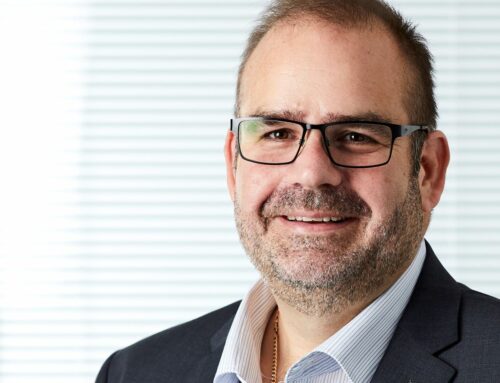Should dealerships repair their view of bodyshop opportunities? That is the provocative question posed to Motor Trade News by Paul Smith, Director, Traka Automotive.
For many dealerships in recent years, the notion of adding bodyshops to their service and PDI centres has been a non-starter. In these more straightened economic days, dealers have focused on the core business of selling and servicing new and approved used cars, and selling associated F&I packages. Premium showroom real estate has been increasingly given over to showing-off new and used inventory out front; while PDI and service centres are placed out back or even a few hundred yards away in lower value, more out of the way locations.
We’ve witnessed an unprecedented decline in independent bodyshops over the last 12 years due to a combination of rising overheads and labour costs, flattening charge-out rates for crash repair work (and thus declining margins), and falling repair volumes on static number of cars on our roads.
However, the independents have not just been hurt my normal cyclical market conditions but by the major insurers who increasingly control the flow of accident repair work into the hands of fewer national players with the scale and breadth of expertise like Nationwide. Market analyst Trend Tracker thinks that the number of independents may have reduced by more than 30% in the last 10 years, amid a reported repair volume decrease of 24% in the 10-years to 2014.
Insurers’ role in controlling where crash repair work goes has definitely undermined independent bodyshops’ market position for the long-term. Many family-owned bodyshops saw their insurer-approved contracts terminated early in the Great Recession, often through no fault of their own, but simply because insurers preferred to work with a few groups rather than multiple independents. To make up the shortfall, these small shops came under increasing pressure to accept contracts from providers which leave them with wafer-thin – if any – profit.
However, does this shake-up also create an opportunity for franchise dealerships to fill UK-wide bodyshop capacity lost during recent years? Is it simply a case of aligning more closely with insurers and prompting their manufacturers to pass them this work? Or is the answer to specialise in repairing specific high value models or even specific types of accidents?
The Nationwide franchise automotive repair chains have thrived by focusing on what might be classed as ‘medium-sized repairs’ – that’s somewhere between everyday dinks and dents and the more serious collision damage – by investing in equipment that enables them to semi-automate common bodyshop processes so that workflow and vehicle throughput is optimised, thereby delivering the margins they need to stay afloat.
There is no doubt that the nature of bodyshop work is changing. When once it was simply a matter of beating out steel wing panels, re-chroming a bumper or mirror and finishing off with a new paint job, today new models are a complex mixture of high strength steels, aluminium, plastics and carbon fibre reinforced polymers constructions and that’s before you get into the mess of IT and autonomous safety systems. Fixing-up these cars after a crash can be highly complex work involving very expensive genuine parts and technical know-how. It often calls for detailed technical understanding of the key differences between makes and models.

So perhaps it will be no surprise to see more franchise dealers expand their service centres to include SMART repair centres. In dealer groups, it is becoming more common to see the establishment of central bodyshops serving several franchise dealerships within a 50 or 100-mile radius. It is a way of keeping hold of the customer relationship at what is often a testing time for them – a well-handled repair job might be that vital ‘moment of truth’ in marketing parlance in which customer loyalty is deepened immeasurably.
And the growing complexity of cars can mean that work associated with getting a modern car to be as good as new following a crash, can prove lengthy and expensive. Even a relatively minor bump can cause ‘internal injuries’ to a car’s systems that could affect driving performance and/or driver safety systems. Anyone looking to mend cosmetic damage also needs to have the expertise to check that vehicle IT systems are still functioning as they should.
For dealerships looking to expand by acquisition, a dealer with an existing bodyshop already looks more attractive than one with a normal servicing and/or PDI centre. Other dealers are forming alliances with independent bodyshops, ideally ones with expertise in their marques and a reputation for only using new genuine parts. Independent bodyshops have much to gain from such arrangements and may well pay a margin for these streams of business.
The bodyshop market has changed so significantly in recent years that there are real opportunities for dealerships to stake a larger claim to this work. Likewise, independents that have aligned themselves well with high-end marques and kept up with the technology and/or developed strong partnerships with dealerships in their region, look to be the winners as the number of small independent players out there continues to decline. Both parties need to act fast before the best alliances are claimed by their respective competitors.
Traka Automotive recently completed development work enabling its software platform to take data feeds from the UK’s leading bodyshop management system EMACS, in order to track car keys in and out of bodyshops.







Leave A Comment